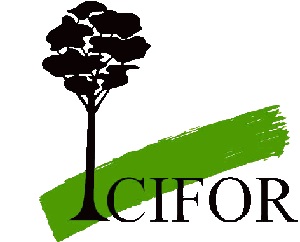
Recently CIFOR, water and land resource centre, Ethio Natural Resource Organization, and PHE Ethiopia Consortium had organized a consultative meeting on challenges and opportunities on conservation of renewable natural resources. As mentioned in the meeting Ethiopia could not sustainably apply its policies, strategies and the international conventions that it signed because of the absence of integrated policy and plan natural for resource utilization, recurrent restructuring of institutions that are dedicated to natural resource utilization without adequate study.
Dr. Azene Bekele is coordinator of Horn of Africa Regional Center for network development with Addis Ababa University and Gambella State Integrated land use and development master plan coordinator as well as researcher and author of various books. Presenting a paper on the integrated land use and management in Ethiopia he said the country does not own a national land use policy and plan for integrated land management.
This has exposed the country to various problems. Many countries have formulated and applied land policy and management that conforms to their objective reality.
In Ethiopia, the council of ministers has also discussed a roadmap for integrated land use plan in February 2017. At the moment instructions were given to finalize a road map for nationwide land use within 36 months.
After the road map was completed development project offices were established in various places. Four documents were prepared for the project while the land use policy document was compiled and forwarded to the relevant body. Suggestions were also given to the relevant body regarding the structure of the institution. Draft legislation and draft policy were also prepared. But only Gambella State is able to finalize the preparation of an integrated land-use plan.
According to Dr Azene, the country is losing a lot of benefits due to the absence of integrated land use policy and plan. The majority of the wildlife species are at risk. Some of the wildlife species have migrated to neighbouring countries. Most of the national parks have now become grazing land for domestic animals. Due to this the country’s land is not giving better benefits in the right way.
Since the land for crop development, urban development and forestry are not identified it is causing land degradation and a decrease in productivity.
We are also forced to import wheat, oil, sugar and other wood products with a lot of foreign currency as we are not able to produce adequate food crops and ensure our food security because of the absence of land use policy and plan. The country which is claiming to enjoy 12 months of sunshine is importing timber from Scandinavian countries that have access to only three months of sunshine.
Mountains in the country are becoming farmland. This is causing soil erosion, landslide and loss of productivity which fail the food security agenda.
According to Azene, establishing a land use institution and land use plan should be a top priority to solve the problems that arise from arbitrary land use and management in the country. Lecturer at Addis Ababa University Professor Sleshi Nimomsa has also presented a paper on the current situation of green ecology in Ethiopia, opportunities and challenges.
Though green ecology has various direct and indirect benefits to human beings it is beset with various challenges in Ethiopia. Among the challenges is the absence of an institutional structure that matches the country’s natural resources and their potential benefits.
He said the recurrent restructuring related to biodiversity and wildlife conservation is aggravating the problem from time to time. Especially the restructuring works are the main source of the problem as they are not based on the study.
Ethiopia is a mountainous country with diverse ecology. This is unique as it has accommodated a large volume of humans and animals. The challenges surrounding the efforts to sustainably administer the ecology and to develop the community sustainably should not be taken as simple matters.
The country has set many targets and ratified many international conventions. But if it goes with the current pace it cannot meet any of them.
Though the forestry proclamation was enacted in 2017/18, there is no rule and regulation for its enforcement. A large number of seedlings have been planted recently. The green legacy initiative is also encouraging. To implement the initiative as per a plan and with the support of experts as well as to give due care to the planted seedlings that could eventually green the whole of Ethiopia, it is important to legally designate the appropriate land for the plantation in consultation with the community.
The experts have also noted that the illegal clearing of forests is aggravating from time to time. The lifestyle that relies on forests, increasing human and animal population, absence of land policy and plan, failure to respect laws and regulations as forest lands do not have legal title deeds, minimal participation of the private sector in forestry development, climate impacts and deterioration of the socio-ecological vulnerability of the community around forests are worsening forest depletion.
The scholars further reiterated that it is important to implement an integrated land use plan and policy as well as to address the restructuring of institutions without adequate study to control problems surrounding natural resources.
BY STAFF REPORTER
ETHIOPIAN HERALD 19 SEPTEMBER 2021




